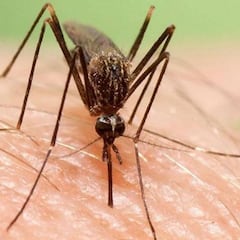Eastern equine encephalitis outbreak: Is EEE deadly? What are its symptoms and how is it spread?
A rare but serious disease has New England authorities urging residents to take precautions against mosquito bites and avoid outdoor activities after dusk.

Last week, health authorities in New England went on alert after a man from Oxford, Massachusetts caught eastern equine encephalitis, the first reported infection of the disease in the state since 2020. While infection and illness from the mosquito-borne virus is rare it can be serious.
On Tuesday, health officials announced that a Hampstead, New Hampshire resident had died after contracting disease. According to the Center for Disease Control and Prevention (CDC) only a few cases are reported each year, but roughly 30% of those who contract the illness die. Many survivors that develop a neurologic disease can suffer long-term health issues, like mental or physical impairments.
What are the symptoms of eastern equine encephalitis?
Fortunately, most people that get bitten by an infected mosquito don’t contract the virus, and of those that do, few become ill. Symptoms generally begin four to ten days after a bite according to the CDC.
Infection can result in a febrile illness or a neurologic disease. The former “is characterized by fever, chills, body aches, and joint pain” which can last for up to two weeks and most people recover completely.
Massachusetts health officials are advising residents to stay indoors and imposing a 6 p.m. curfew on outdoor activities until at least October after detecting a human case of eastern equine encephalitis (EEE) spread by mosquitoes. pic.twitter.com/Jt9Ti6NrdU
— CBS Evening News (@CBSEveningNews) August 23, 2024
Those who develop neurologic disease, meningitis or encephalitis, may experience “fever, headache, vomiting, diarrhea, seizures, behavioral changes, drowsiness, and coma” and around a third die, usually two to ten days after symptom appear. Those that recover often suffer long-term health issues.
Related stories
There is no specific treatment and no vaccine against the eastern equine encephalitis virus. The virus does not spread from human to human. The majority of cases occur in eastern and Gulf Coast states, but cases have also been reported in the past in the Great Lakes region. It is most common in and around freshwater hardwood swamps.
Health officials recommend preventing mosquito bites to reduce your risk of getting infected. This includes staying indoors between dusk and dawn and when outdoors wearing long pants, long-sleeve shirts and socks as well as using repellent.



Complete your personal details to comment